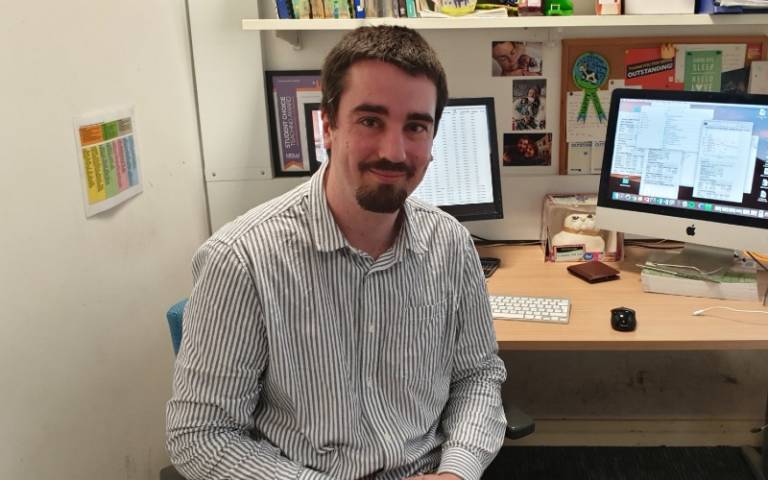Reflect on your teaching practice with UCL Arena: Lawrence Bellamy
Dr Lawrence Bellamy, Division of Biosciences and Genetics, Evolution and Environment shares his experience of gaining Fellowship and working as an Assessor through UCL Arena.

6 January 2020
Which Arena pathway did you follow and where did you hear about it?
I have worked as an Assessor for UCL Arena since its launch. In the role, I have learnt about so many brilliant approaches to teaching used by our staff here at UCL that I finally felt compelled to write about my own experiences.
I successfully applied to be a Senior Fellow of the Higher Education Academy (HEA) through Arena Open.
What is UCL Arena Open?
UCL Arena Open gives experienced staff the opportunity to gain both a UCL Arena Fellowship and the corresponding HEA Fellowship in one of four categories:
- Associate Fellowship (AFHEA)
- Fellowship (FHEA)
- Senior Fellowship (SFHEA)
- Principal Fellowship (PFHEA)
These awards are made on the basis of your successful experience of teaching, supporting students’ learning or leading an aspect of education at UCL.
What was your motivation?
After a number of years of teaching and running the same courses, I have to admit that I became a little set in my ways and my courses were a bit stagnant.
What was the most useful element?
Completing an application gave me an important and long-overdue opportunity to reflect on my own teaching practices. It required me to research more recent teaching theory and methods in my specific subjects.
Many of these changes were successfully implemented this current academic year, so I am really pleased that I completed my application when I did.
How has it changed your support for teaching or teaching?
One of the criteria of a Senior Fellowship application is that you can demonstrate how your own teaching has influenced the teaching of others.
I have been extensively involved with training both staff and Postgraduate Teaching Assistants (PGTAs) in my department on how to teach in higher education, in particular on how to mark essays. Through this work, I have helped re-designed the essay marking criteria for Division of Biosciences, which has benefited both staff and students alike.
How do you think your students have benefited from you taking part?
Being actively involved with UCL Arena is useful because you learn so much about how others teach.
For example, I run a module which teaches statistics for biologists. I have changed the contents and teaching methods on this module based on the talks that I have attended.
As a more specific example, I found that I was struggling to manage a large team of PGTAs on one of my modules.
The PGTAs were responsible for marking essays, but the grades and feedback they were giving the students was highly variable. A member of the UCL Arena team advised me on how PGTAs can be trained in providing more consistent feedback and I continue to provide this training today.
How much of a commitment was it for you?
I completed the application during the summer break in 2018 when the work-load of a Teaching Fellow is at its lowest.
I found this a good time to complete the application because any changes you decide to make from the reflection period could be implemented for the start of the academic year.
Support your research students to gain Fellowship
I have helped Postgraduate Teaching Assistants (PGTA's) and post-doctorate staff in my department gain Associate Fellowship of the HEA. It gives them a nationally recognised qualification for their teaching experience.
This is important because in the future they are likely to apply for research positions which have additional teaching responsibilities.
Another advantage comes from my own experience of teaching as a PGTA in UCL (from 2007-2012). Back then, I was never taught how to teach in higher education and I had to learn through my own successes and mistakes.
 Close
Close

